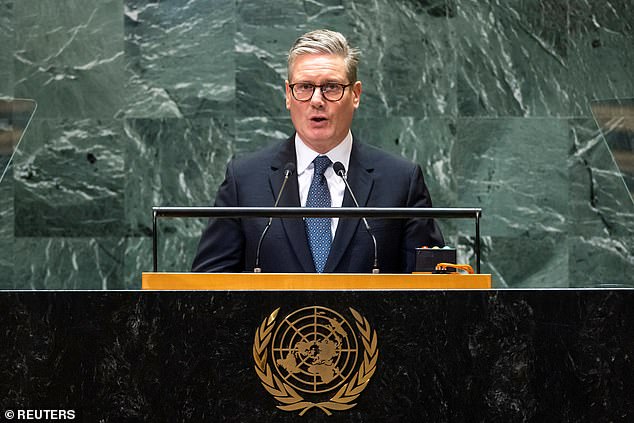In a recent address to the United Nations General Assembly, Prime Minister Keir Starmer emphasized the urgent need for Israel and Hezbollah to agree on a ceasefire, stating that “escalation serves no one.”
As tensions rise in the Middle East, with Israel launching missile strikes on suspected Hezbollah positions in Lebanon, Starmer urged both sides to “step back from the brink” to prevent a potential all-out war.
The Ongoing Conflict
The Prime Minister’s plea comes amidst a series of intense attacks that have heightened fears of a broader conflict.
Israeli Prime Minister Benjamin Netanyahu, however, has made it clear that military actions will continue “fighting at full force,” dismissing discussions of a ceasefire.
Starmer cautioned that the ongoing violence could lead to uncontrollable war, urging leaders to recognize the dire consequences of continued fighting.
He called for an immediate ceasefire to create space for diplomatic solutions and emphasized that failure to act would lead to further suffering for innocent civilians.
Humanitarian Crisis in Gaza
Starmer did not shy away from addressing the humanitarian situation in Gaza, declaring, “It shames us all that the suffering in Gaza continues to grow.”
He stressed that diplomacy is the key to resolving the crisis, advocating for the release of hostages held by Hamas and unrestricted aid access to those in need.
He believes that this approach is vital to breaking the cycle of violence and moving toward a lasting political solution that supports both a secure Israel and a viable Palestinian state.
“The world cannot look away,” he warned.
Reforming the UN and Global Leadership
Starmer’s speech also touched on the need for reform within the United Nations.
He criticized the organization’s effectiveness, particularly in light of the ongoing conflict in Ukraine, stating that the UK would “stand with Ukraine for as long as it takes.”
He argued that the international community must not allow aggressors to act with impunity and emphasized the UK’s commitment to “responsible global leadership.”
To support global development and tackle climate change, Starmer announced a new British International Investment initiative aimed at leveraging pension and insurance funds.
He also proposed a global shipping levy to address emissions and called for changes in the UN Security Council, advocating for broader representation, including permanent seats for countries like Brazil, India, Japan, and Germany.
A Unified International Response
Starmer’s call for action comes alongside similar appeals from other world leaders, including U.S. President Joe Biden, who warned that the Middle East is on the verge of “all-out war.”
At the UN, Biden underscored the importance of de-escalation, believing that a settlement could fundamentally change the region.
French President Emmanuel Macron echoed these sentiments, stressing the need to avoid war in Lebanon and pushing for an emergency session of the UN Security Council.
Moving Forward
While there are ongoing diplomatic efforts to address the crisis, Netanyahu’s spokesperson acknowledged the challenges in negotiating with Hezbollah, citing a lack of progress despite numerous attempts.
As the situation continues to unfold, the international community faces the pressing task of finding a path toward peace and stability in a region fraught with tension.
